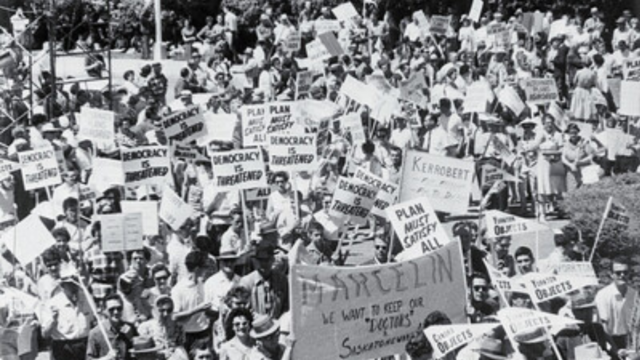
The federal government has officially recognized the Saskatchewan Doctors’ Strike of 1962 as an event of national historic significance, highlighting its role in shaping Canada’s public healthcare system.
The announcement, made by Environment and Climate Change Minister Steven Guilbeault, comes through Parks Canada’s National Program of Historical Commemoration.
The strike began on July 1, 1962, when Saskatchewan implemented the Medical Care Insurance Act, introducing publicly funded medical services.
The Saskatchewan College of Physicians and Surgeons opposed the legislation, arguing the government should subsidize private insurance rather than enforce a universal model.
In response, roughly 90 percent of the province’s doctors withdrew their services, sparking a 23-day work stoppage that disrupted patient care and ignited a national debate on the future of healthcare.
While most doctors participated, some continued working, either in support of the new system or due to ethical concerns over denying patient care.
To mitigate the crisis, the government recruited doctors from outside Saskatchewan, emergency services remained available at select hospitals, and new community clinics were established. Despite these efforts, the strike caused significant healthcare disruptions.
The dispute ended on July 23, 1962, with the signing of the Saskatoon Agreement, which allowed doctors to maintain control over patient care and determine their payment structures.
The agreement became a key reference point for the federal Medical Care Act of 1966, which expanded universal healthcare across Canada. By 1971, every province had adopted a publicly funded health insurance plan.
The strike’s national and international attention underscored the tension between government intervention in healthcare and the independence of the medical profession.
Historian C. Lesley Biggs, who nominated the event for designation, noted that the strike divided the province, with advocacy groups like the Keep Our Doctors committee campaigning against universal health insurance while others saw it as a necessary step forward.
Parks Canada and the Historic Sites and Monuments Board of Canada recognize significant people, places, and events that have shaped the country’s history. The designation of the Saskatchewan Doctors’ Strike of 1962 acknowledges its profound impact on the evolution of Canada’s healthcare system—now regarded as one of the country’s most defining social programs.

































